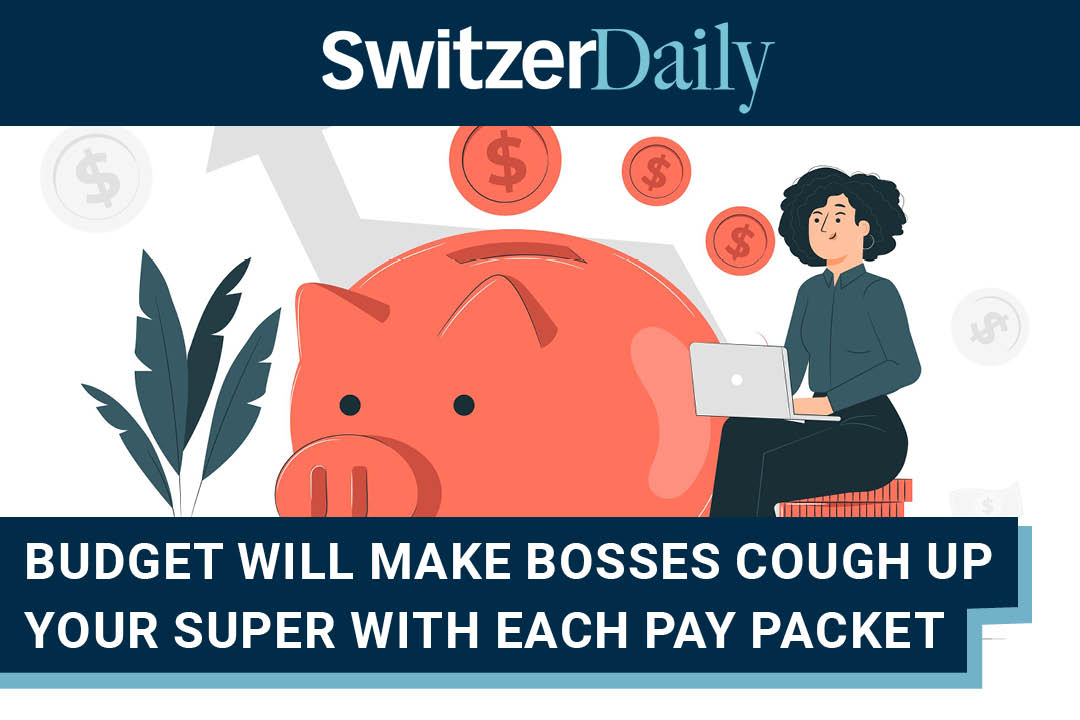

It’s been a long time coming but eventually a government was going to make the majority of good employers pay for any dud or criminal boss who robbed their employees of their super payments. So, in next week’s Budget we’re going to be told that by 1 July 2026, super will be paid with a worker’s pay-packet.
No longer will smaller operations be allowed to pay super quarterly, which means an employee can check that super has been paid, just as they see that their pay has showed up. It’s a bummer for cashflow for small businesses but the bad bosses who ignored the law have cruelled it for the majority who played by the super rules.
While this is good for employees and super funds, which will have even better cashflow, it’s a new impost on 56% of microbusinesses and 30% of small-to-medium businesses who have paid super quarterly for their employees.
In the age of manual payment of wages, this concession for smaller businesses was fair and understandable. Now, however, with computers and bookkeeping software such as Xero and MYOB, the process of wage and super payments has become increasingly automated. So, this change will be more a problem for cashflow than workload.
Why is the Albanese Government doing this? Well, the AFR says the ATO thinks unpaid super in 2019-20 was $3.4 billion. The industry thinks it’s closer to $5 billion!
Given super is compulsory and a part of someone’s wage, this is a crime that needs to be stopped. In fact, I’ve been whingeing in the media for over a decade about the fact that many smaller businesses have got into trouble and have either simply stopped paying super on behalf of their employees or went broke with wage, debt and super obligations and didn’t have the money to cough up. If all their personal assets were lost in the business failure, then there was no money to make the overdue payments to ripped-off workers.
By the way, compulsory super is now a lot of money being 10.5% of someone’s gross pay. It will rise to 12% by 2025-26, and this new super-payment law comes in one year later.
The delay gives time to businesses to get used to less cash to play around with each quarter. And there should be recognition that employers are doing the job of the Government and the employee by making sure the super system worked smoothly.
Imagine if the law was that employees were instructed by the government to pay their super out of their wage privately, like the way we pay for insurance or car rego.
Lots of people wouldn’t do it, and then the ATO would have to take out this super at tax time and then dump the money into a person’s super fund. And if they didn’t have one, because they didn’t find one, the government would have to have a default fund.
It would be a nightmare task that most employers save the government, super members and super funds from having to do.
Interestingly, Treasurer Jim Chalmers has done some figuring to work out what an average employee gains because super will be paid fortnightly, instead of quarterly. “Dr Chalmers said in a statement that a 25-year-old median income earner now receiving their super quarterly and wages fortnightly could be around $6,000 or 1.5 per cent better off at retirement by having their super paid fortnightly,” reports Phillip Coorey of the AFR.
That’s small beer for the average super member but for the people who have seen their super ripped off, where tens or even hundreds of thousands have been lost from super, this change is definitely the right move.
(Click here for my latest TV show that underlines five hot stocks with plenty of upside)